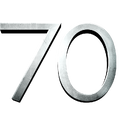12. Purchasing Tips
Due to the already mentioned diversity in the keyboard market it's not easy, and in this situation difficult to want to give advice in this situation. The technological specifications don't offer any clue. And while guitarists can say, for example, to pay attention that the neck is straight, the only thing a keyboardist might say is that you shouldn't pour beer on your instrument.
Honestly however, technology doesn't degarde that quickly and even very old instruments are often in excellent condition. There are probably only three main points to keep in mind when purchasing:
- How much are you willing to spend?
- What do you want to do with it?
- Which technical jobs does the keyboard need to accomplish?
For point 1, the first consideration is new or used. As the half-life on the electronics market is getting shorter and shorter, a used keyboard isn't necessarily old. If you take a look at the ads in our classified section you'll find that out. But if you want to buy something specific like a Minimoog, that can be quite expensive. In any case, when buying second hand, take an expert and test the device before purchasing.
Point 2 is equally important. If you want to learn to play classical piano with a piano teacher, then it would be silly to buy a keyboard. If you're doing home recording, yesterday's monophonic keyboard with just two sounds is useless. And if you're touring with a band, then you don't necessarily need a heavy Hammond and Lesley, if you do you'll need your own keyboard roadies. Probably the best way to make a decision is to go to some specialty stores with well-stocked keyboard departments and test different models. At least one thing is clear: If you ask another keyboarder, they'll recommend their equipment. But that doesn't mean it will fit your needs.
Point 3 is also very important and you'll be able to knock some models of your list depending on your answer. You'll need to think about what the keyboard will be used for and what technical features it will need to do this. This includes, for example, whether it has an internal hard drive to comfortably handle large amounts of data, or whether individual outputs are needed to mix individual MIDI tracks in an external mixer, or if you're an entertainer, you'll need built-in vocal processing, in addition there are many different styles, with 61 or 76 keys, etc. You should prepare a checklist in advance and talk to other musicians in addition to getting information at a music store.


